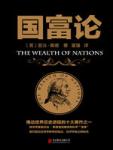Chapter 1 Introduction and chapter design
All the necessaries and conveniencies of life consumed annually by the citizens of a country (including the direct produce of the country, or the articles purchased from foreign countries by means of such produce) originate from the labor of the nationals.
The quality of national life supply depends on the ratio of daily necessities and conveniences to the number of consumers.For the citizens of any country, this ratio is subject to two factors: first, the proficiency, skill and judgment of the nationals in using labor; second, the number of people in the country who are engaged in useful labor and those who are not. proportional size.Regardless of the state of the country's soil, climate, and size, the provision of national life is determined by these two factors.
In addition, the quality of national supply seems to depend to a greater extent on the first factor.In uncivilized fishing and hunting ethnic areas, in order to support themselves and those in the family who are unable to work due to old, weak, sick and disabled, those who are able to work are more or less engaged in useful labor to obtain various necessities of life as much as possible. Convenience items.However, because of the lack of resources, they have no choice but to live in poverty—at least they are considered to have no choice—either directly kill their elderly, children, or long-term sick relatives, or abandon these people and let them starve to death or be tortured. The beast devours.On the contrary, in a prosperous and civilized country, many people, even if they do not work at all, often consume, ten or a hundred times more, the produce of their labor than the majority of the laborers consume.Because, at this time, all the labor products of the society are very large, which can be supplied to all people, including the lowest and poorest workers.So long as these lowest and poorest working people are diligent and thrifty, they can enjoy more necessities and conveniences of life than those uncivilized people.
How is the productivity of labor improved, and in what order are the products of labor distributed naturally to all social classes?The first part of this book deals with these issues.
If the actual proficiency of labor and the three conditions of skill and judgment remain constant in the use of labor by the nation, then whatever the level of these three conditions, the supply will necessarily depend on the number of people engaged in useful labor and the The proportion of the population not engaged in useful labor.The number of productive and useful laborers is in every case in proportion to the quantity and employment of the capital which drives the labor, as will be shown later in this work.
The second part of this book discusses: the nature of capital, the method of capital accumulation, and the different amounts of labor it promotes because of different uses of capital.
As dexterity, skill, and judgment in the employment of labor have been acquired, the different nations have adopted very different plans for the general administration or direction of labour.These schemes are not in the same degree favorable to the increase of the produce of the country.Some countries especially encourage rural industries, while others encourage urban industries. I am afraid that no country has implemented a policy of evenly developing various industries.After the collapse of the Roman Empire, European countries have implemented policies that are less conducive to rural industries and more conducive to urban industries, that is, to encourage the development of handicrafts, manufacturing and commerce.Why were these policies adopted and mandated?This is the subject of Part Three of this book.
These plans, which at first may have been swayed by the interests and prejudices of particular classes, were eventually carried out.But the effects of these programs on the welfare of society as a whole were not considered, let alone foreseen.Because of the influence of these programs, very different economic doctrines have emerged.Some people think that urban industries are important, while others think that rural industries are important.These different doctrines aroused great repercussions, and influenced not only the opinions of scholars, but also the policy of kings and states.In the fourth part of this book, I shall try to give, as far as I can, an account of these various doctrines, and of the important influence which they exerted in ages and nations.
In short, the first four parts of this book have explained how the income of the nation is constituted, and the nature of the wealth which is supplied annually to the consumption of the nation in different ages and countries.The last book of this volume, the fifth, deals with the revenues of the prince or state.In the fifth book, I endeavor to explain these three points: First, what are the necessary expenses of the sovereign or the state, and the sources of their taxes, what part should be shared by the whole society, and what part should come from some special classes or members of the society .Second, how to raise the funds of all taxpayers in the whole society, and what are the pros and cons of various methods of raising money.Thirdly, what is the reason why modern governments have almost always issued public debts against a part of their revenues as security;

